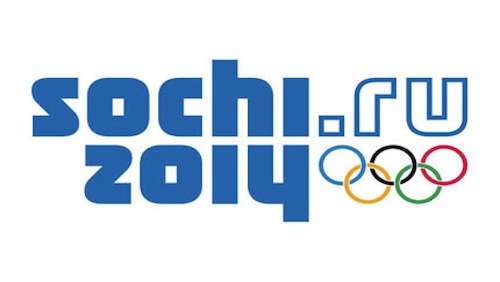 When Sochi was awarded the 2014 Winter Olympics hosting gig some seven odd years ago, little of us took the time to cheer for the decision, largely because little of us knew exactly where Sochi was.
When Sochi was awarded the 2014 Winter Olympics hosting gig some seven odd years ago, little of us took the time to cheer for the decision, largely because little of us knew exactly where Sochi was.
Even today, ask somebody on the street and they’re more likely to point you to the direction to Oz. But those who kept tabs on the preparations for this Winter Olympics knew exactly where Sochi is, and yet with the Olympics a few days away from opening, the adage knowing less is more is proving to be true.
The stadiums where the games are going to be played are actually pretty spectacular. The Iceberg Skating Palace, in particular, is a sight to behold. So is the Bolshoy Ice Dome. Both are 12,000-seat stadiums built specifically for the Sochi Games and shows what the Russians are actually capable of doing if they put the time, money, and resources in the right place.
But as far as everything else, well, that’s a matter of interpretation, especially if you’ve lived a certain level of comfort in your lives.
Walk into any one of the hotel rooms in this former tropical swampland (that’s a discussion in itself for another day), and you’re more likely to be introduced to the kind of Russian hospitality you never would’ve expected. For all the talk surrounding the record $51 billion Russia spent on the Games ($7 billion more than what Beijing spent on the 2008 Summer Games), there’s little in the way of proof that the money was spent on improving the accommodations for the athletes, the media, and the tourists.
Some rooms have no light bulbs. Others have no shower curtains. Doors are optional, apparently. Some rooms have two single beds…with just one pillow. Stray dogs roam around the halls. One American journalist was even warned not to put the water coming out of the faucet in her hotel room on her face because it “contained something dangerous”. It wasn’t until the reporter showed a photo of the said “dangerous face water” that we had an idea of what it looked like.
Think less like clear H20 and more like cloudy piss. Fantastic.
Oh, and be careful about those sheets, too, because as another media member infamously found out a few days ago, you never know how much semen was left on them.
Sochi is turning into the kind of environment you brace yourself for when you go to an abandoned summer house by the lake, not a Winter Olympics that cost $51 billion. Really, it’s gotten so ridiculous to the point that tourists in town have spent less time enjoying the architecture and more time exchanging war stories of the oddities they’ve seen, smelled, and heard in a town that resembles little of the promise Mother Russia gave to the world.
From open manhole covers to unopened hotels, to roads that still lack cement, every conceivable inconvenience of a Bizarro Sims-like world can be found in Sochi. Think Athens 2004 was bad? Five-star treatment compared to what everyone’s bracing for in Sochi.
Even the stray dogs in Sochi have been turned into sympathetic figures, much more now after reports indicated that a company has been hired to send them off “somewhere”. You don’t need to be a rocket scientist to figure out that “somewhere” is a more gentle way of saying that these poor mutts don’t have a lot of days in front of ’em. Give them a medal if they survive the Olympics. I’m sure they would’ve earned it, too.
The staggering lack of order, sanitation, and downright efficiency puts a huge light on how this Olympic Games is turning into the poster child of corruption, carelessness, and a total lack of clear-cut planning that the international community is witnessing on a first-hand basis.
It’s not like there wasn’t money available. $51 billion is a staggering amount for any quadrennial event, much less the Winter Olympics, long considered as the Summer Games’ kid brother. Think Beijing, which spent $44 billion on the 2008 Summer Games, is scratching their heads on why Moscow spent $7 billion more on this Games, knowing full well that it won’t even come close to the glamour and prestige its own Olympic Games?
A valid question that should be directed to Vladimir Putin’s government, even if its rhetorical in some sense. It’s not been proven, but you’d be naive to think that you don’t know where all that money went. Jason Kirk did a piece on it yesterday and it’s already been detailed out for your perusal.
With the opening of the Sochi Games a few days away, it is a little premature to say that this Winter Olympics will go down as a farce. After all, accommodations, while crucial, isn’t as important as the Games themselves. It certainly won’t be as important a narrative if threats of terrorism and gay rights violations burst from under the surface, an all-too real possibility that has the entire world squirming in their seats.
And most certainly, let’s not forget about the athletes that will be competing. After all, the Games are really about them showcasing their talents on a global stage. There will be stories of triumph and heartbreak in Sochi. Those are the stories that are worth paying attention too.
But for now, the Sochi Games has gotten off to a bumbling start, yet everyone is still encouraged to enjoy the next three weeks, even if the word “enjoy” has taken an entirely different meaning in this winter wonderland of absurdity.